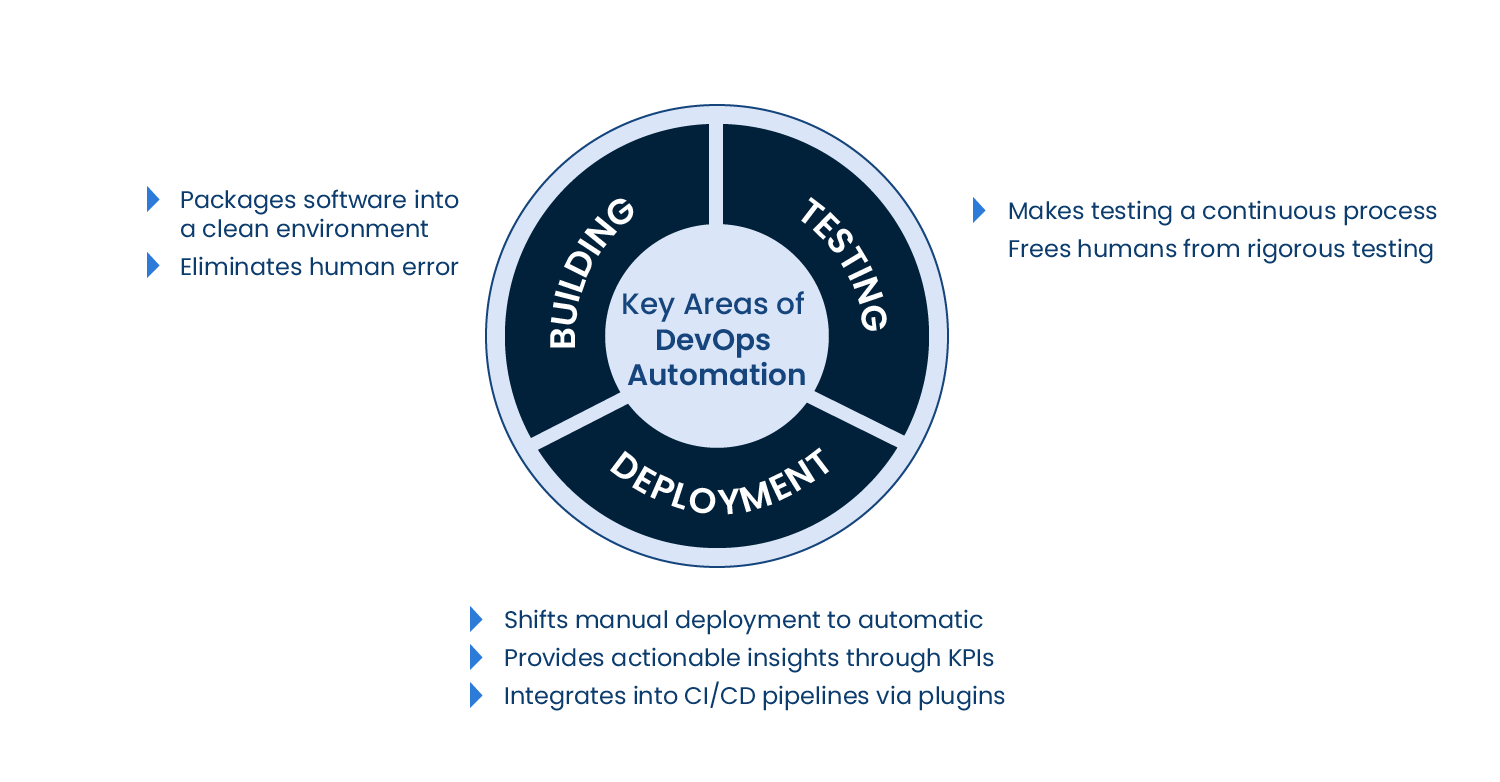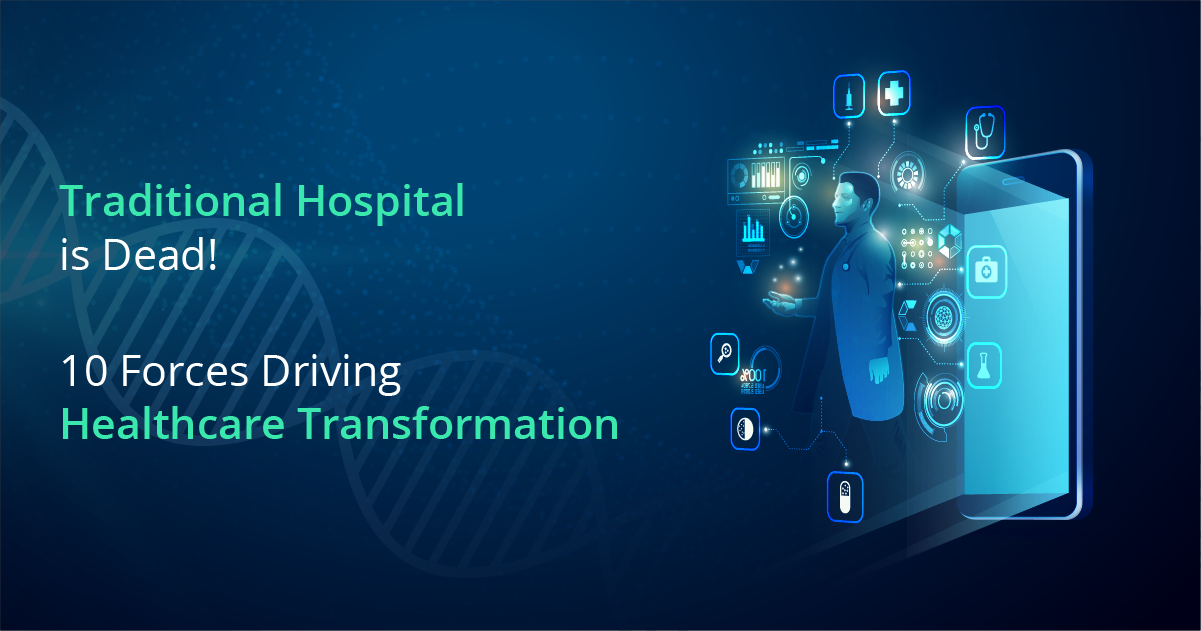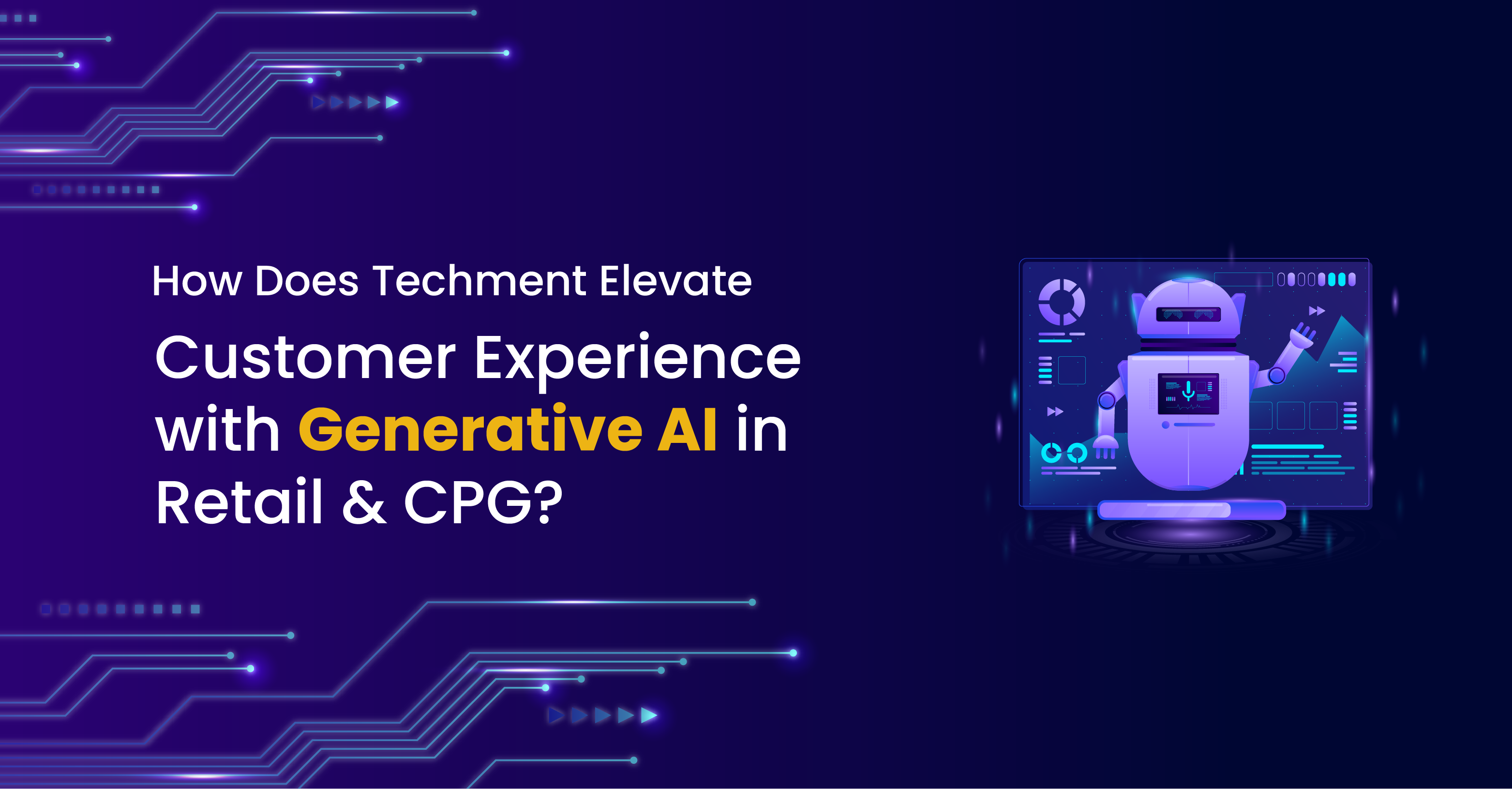Technology disruption is something that brings threat to the industries but also provides an opportunity to think ahead of its competitors and bring innovative products to enhance customer experience. To meet current market’s preferences, organizations require to develop & improve. Retail is one such industry which constantly needs to stay closer to consumers with shorter time-to-market while still maintaining ROI. DevOps has been adopted by retailers to catch up today’s trends and be ready for digital transformation.
It’s no surprise that DevOps is gaining momentum across industries and will continue to grow at a CAGR of 24.2% and is expected to reach $57.9 billion by 2030, according to Allied Market Research. Retail industry will have to continuously develop process layout frameworks and release minimum viable products (MVPs) in a shorter time frame. DevOps, in retail, is the bridge that fills the gap in software development lifecycles and enhances productivity of their businesses. It has become the most pressing customer-oriented technology adopted by the retail industry.
How has the Retail Industry Transformed Post Pandemic?
Reports by Oberlo show that online shopping will increase e-commerce sales to $6.4 trillion by 2024 worldwide. In the realm of retail and e-commerce, the advent of online shopping or ‘social commerce’ has undeniably revolutionized the industry’s landscape with web-based shops as it provides ease of shopping and saves a lot of time. So unless a retail company invests in emerging technologies, it won’t be able to acquire new customers and won’t be able to reduce friction on customers’ shopping journey.
Keeping this in mind, retailers across the globe have already started investing in SaaS solutions to experience faster workflows and give customers a better experience. Here, DevOps has become an integral part which ultimately functions to streamline the inventory pipeline, helps in efficient inventory management, improves retailer organization’s performance and yields profitability.
This needs digital transformation of retail operations which includes a setup that involves the configuration of backup systems, application development, testing, monitoring and executing processes, network, and others that maintain the production cycle. This involves DevOps approach! Therefore, DevOps, with its streamlined approach, fosters a deeper connection between retailers and their customers.
How DevOps Scores Better than Traditional IT?
- DevOps spends less time in handling support cases like administrative support due to higher levels of automation and self-service tools.
- DevOps is driven by an innovative approach as it tends to be small & agile and is focused on addressing tasks in an accelerated manner. Agile is one of the key objectives of DevOps.
- The team reacts faster, quickly & effectively on failures due to continuous testing alerts, feedback, and monitoring. The time needed in addressing failures is reduced to approx 70%.
- This approach delivers more fit-for-purpose softwares due to constant feedback loops.
- With clear product vision within the team, there exists better process transparency & decision-making.
- DevOps greatly enhances security of applications by utilizing automated security testing tools that enable code scanning for vulnerabilities at every stage of the development lifecycle. The automated test processes promote consistency and predictability, making it easier to pinpoint and fix any issues that may arise.
- DevOps leverages cloud platforms and avoids significant upfront investments in hardware and infrastructure setup. Also, it leverages automation to quickly respond to market demands, gain a competitive edge, and generate revenue earlier.
How DevOps Cater to the Needs of Retail Businesses With Its Service Offerings?
DevOps offers a range of services that are specifically designed to address the unique requirements and challenges faced by retail businesses. These services encompass various aspects of software development, infrastructure management, and continuous integration and delivery. Here are some key services provided by DevOps in the context of retail businesses:
Enhances Social Commerce in Retail: Social commerce is revolutionizing the process of purchasing, offering an experience that bypasses the channels controlled by brands.As consumers progressively rely on social platforms to explore products and make purchasing choices, the path taken by customers will increasingly diverge from brand-owned channels.
For social commerce, applications are the front door to keep up with online customers. DevOps, in this case optimizes the delivery of application by ensuring that high-quality application is delivered to the clients which helps in easy interaction of their customers. The lifecycle of DevOps is designed to optimize systemic inefficiencies and rapid delivery of high-quality code.
DevOps enhances the utilization of written code and hence delivers new features in applications faster which delivers more value to a retail company.
For our client’s infrastructure setup, we utilized the power of DevOps and automation to streamline the process, ensuring a quick and consistent deployment within just one hour. By leveraging Azure Bicep templates, which enable code reuse and modularity, we were able to establish an infrastructure that met our client’s requirements efficiently.
One of the key components we integrated into the infrastructure was Azure Data Factory (ADF), a cloud-based data integration service. With ADF, we empowered our clients to orchestrate and automate data movement and transformation across various sources and destinations. This allowed them to streamline their data workflows and improve overall operational efficiency.
In addition to ADF, we incorporated Azure SQL Database (Serverless) into the infrastructure setup. Azure SQL Database offers a fully managed, serverless option that dynamically scales based on demand, optimizing resource utilization and cost-effectiveness. This provided our clients with a robust and scalable database solution that could handle their data storage and management requirements effectively.
To manage user authentication and access control, we integrated Azure Active Directory (AD) into the infrastructure. Azure AD enables centralized identity management, allowing our clients to define and enforce security policies across their organization. It provides seamless integration with various Azure services, enhancing the overall security posture of the infrastructure.
Furthermore, we set up an Azure B2C Tenant, which is a cloud identity management solution specifically designed for customer-facing applications. Azure B2C Tenant allows our clients to provide a secure and personalized experience for their customers while maintaining control over identity and access management. It simplifies the registration and authentication processes, ensuring a seamless user experience for their customers.
By leveraging DevOps principles, automation, and Azure Bicep templates, we successfully established an infrastructure that not only met our client’s requirements but also ensured consistency across all environments. This streamlined setup empowered our clients to focus on their core business activities, while the automated deployment process and modular design allowed for easy maintenance and scalability in the future.
By leveraging the principles of automation and redundancy, we ensured that the system remained resilient and continued to serve users even in the event of failures.
One of the key approaches to achieving high availability is by implementing replica instances of critical components within the cluster. Replicas are exact copies of the primary instances that can seamlessly take over in case of failure, reducing downtime to a negligible level. This approach ensures that even if one instance fails, the replica can quickly and automatically assume the workload, minimizing the impact on users.
Employing DevOps practices to maintain highly available clusters involved utilizing automation, redundancy, and containerization. By implementing replica instances, leveraging container orchestration platforms like Kubernetes, and employing effective monitoring and incident response strategies, we significantly reduced downtime during failures.
Streamlines Inventory With Automation: Streamlining inventory is often a challenge for retailers but this can be optimized by using automation to keep inventory details. Using ARA (application release automation), DevOps teams continuously practice continuous integration/ continuous deployment (CI/CD) and automatically deploy application updates through stages of development.
By integrating DevOps automation into the retail sector, businesses can streamline their decision-making processes through efficient aggregation and processing of data. Retail companies require robust software solutions that effectively handle vast amounts of inventory data and offer valuable insights derived from data analysis in a cost-effective manner.
Once the data is aggregated, DevOps automation facilitates its processing through sophisticated analytics tools. These tools employ algorithms and machine learning techniques to extract meaningful insights from the data. Retail companies can leverage these insights to gain a deeper understanding of their inventory, customer behavior, market trends, and other crucial aspects of their business.
These are the key areas where DevOps Automation is employed:

Better Feature Integration: DevOps allows retailers to iterate and innovate quickly, making it possible to roll out new features in a timely manner, thereby enhancing customer satisfaction and fostering long-term customer relationships. This approach also helps in smooth customer check out. By leveraging continuous integration and deployment, retailers can implement required design enhancements rapidly and efficiently, improving the overall usability of their shopping carts and reducing friction in the checkout process.
Hence, DevOps in the retail industry enables faster software development, efficient infrastructure management, continuous monitoring and incident response, e-commerce optimization, personalized experiences, and enhanced security and compliance. These technical benefits of DevOps contribute to improving operational efficiency, driving revenue growth, and delivering exceptional customer experiences in the competitive retail landscape.
Conclusion:
Adoption of DevOps Requires Collaborative Culture
In conclusion, it is crucial to recognize that adopting DevOps entails fostering a new culture within the organization, where internal teams collaborate closely and share a unified vision. This alignment allows everyone to work towards a shared objective of achieving success.
At Techment Technology, we view DevOps as a hands-off approach to software delivery, driven by continuous integration and continuous deployment (CI/CD). This approach ensures that the entire software delivery process, from development to production, functions as an integrated and seamless unit, resulting in greater business value for retailers.
Ready to optimize your retail operations with DevOps? Take the first step & book your consultation with our experts.
 All Posts
All Posts


